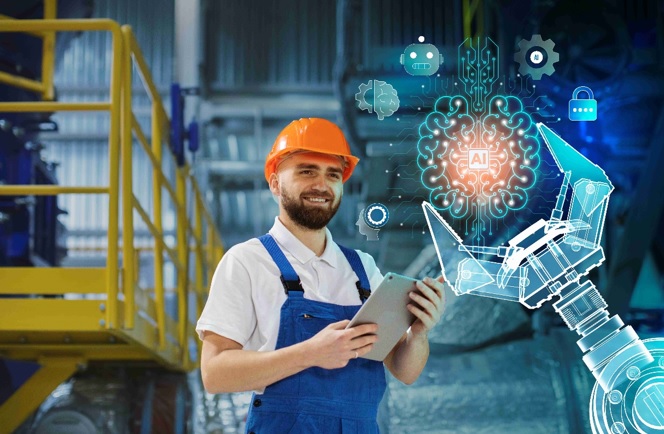According to industry participants, technology has always been an important component of the development of the construction industry throughout the years. There is considerable complexity involved in construction projects that require considerable planning and extensive preparation. Unlike software projects where one can make immediate changes in construction projects things are much more predetermined.
In addition, construction projects depend on many things that the builder must know beforehand. Must know electrical, HVAC, plumbing and parking. He must deal with environmental studies, zoning, etc.
There are so many things to consider on projects that it's no surprise that complex developments can take years of planning before the... bulldozers even start rolling in.
The more construction teams are properly prepared, the more successful the construction project will be and the less cost and schedule overruns will occur.
Given the above complexity, industry insiders explain, artificial intelligence is already having an impact on improving the efficiency and effectiveness of construction projects. From optimizing scheduling to optimizing resource allocation, helping with risk management and predicting things like potential delays, cost overruns, and generally improving and enabling much better decision-making, AI is already proving its worth.
The design
At the beginning of a project, AI is applied to design and planning, especially around optimization. AI technology is applied to tools such as BIM that support digital representations of the various physical and functional characteristics of buildings.
AI tools are also used in genetic design software that uses machine learning to optimize building designs. These tools can analyze vast amounts of data to recommend the most efficient or cost-effective design solutions. These approaches can help reduce material wastage and reduce project construction time, which greatly aids in producing accurate cost estimates that reduce the risk of cost overruns.
AI-based project management platforms are also helping construction groups. Help is also provided to construction sites to have materials when they are needed, forecasting supply chain demand and shipping requirements and performing on-site quality control to ensure they meet requirements. This helps avoid supply shortages or overages where supplies are sitting out and wearing out unnecessarily.
Autonomous Robots
When people see those fancy videos of robots running and jumping, it's hard not to think about the impact autonomous robots will have on real work, specifically the construction industry. Indeed, companies are already developing different robotic and autonomous systems that can do things like install drywall, lay bricks, pour and flow concrete, or drive autonomous vehicles around the construction site. Although to date most of these systems are at an early stage with little adoption by the manufacturing groups, it is estimated that in the future they will have an increased influence.
The use of autonomous robotics in construction is the so-called "4 D's of Robotics" which are, as people in the industry explain, for jobs that are considered "dangerous" or "dirty" or "expensive" for construction workers to do. Certainly, there are many construction workforce jobs that qualify. Human labor is expensive. People get injured, get sick and have to take breaks and can't work 24 hours a day and there are places where it's dangerous to work. For all these reasons, it makes sense for robots to lend their assistance and through the use of artificial intelligence that can keep construction projects on schedule and on budget.















